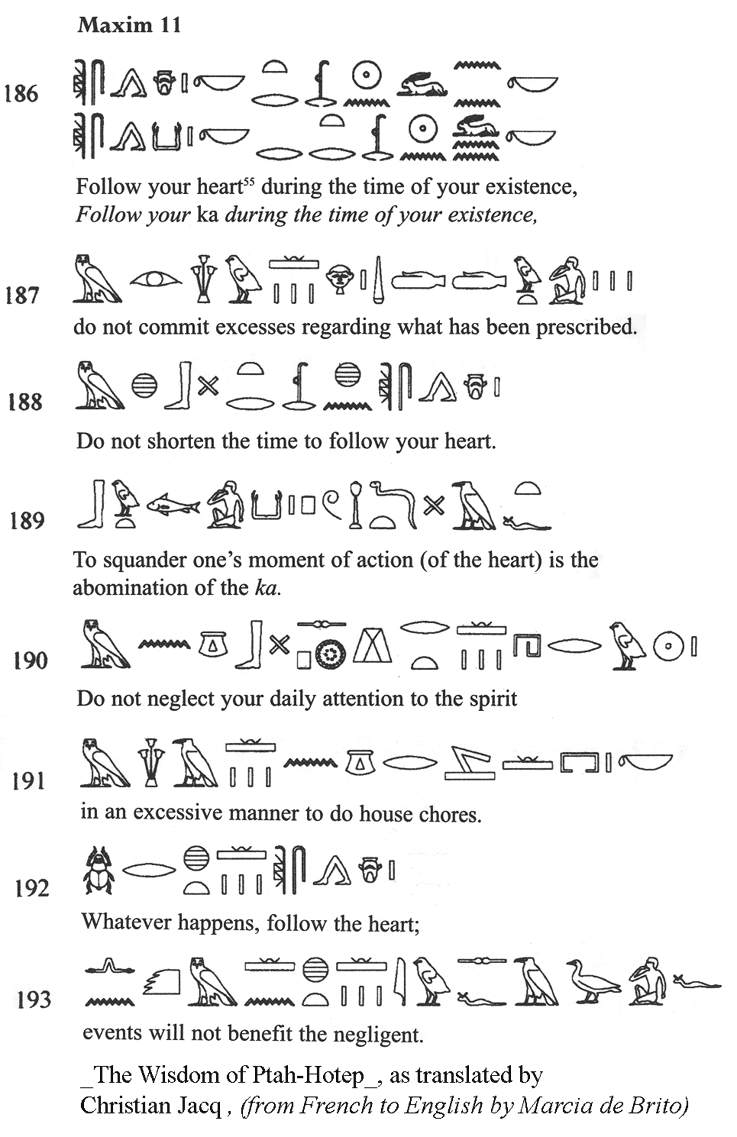|
May 3, 2008
And I had far more success in the book search. A new translation of the _Wisdom of Ptah-Hotep_ appeared, by Christian Jacq. I'd not heard of him, so I didn't know how reputable. But the book contains the actual hieroglyphs, so it gained points just for that. When we got home, I hunted for another book, which also has a translation of this text, this time by Vincent Tobin. Tobin writes, "This text, one of the undisputed masterpieces of ancient Egyptian literature, dates possibly from as early as the late Sixth Dynasty of the Old Kingdom. Some scholarly opinions, however, prefer to see it as a Middle Kingdom composition dating from the Twelfth Dynasty." Whether from 2345-2183BC or from 1991BC-1802BC, it is a very early book of wisdom. Tobin explains, "Due to the extreme difficulty of this text, modern translations of it show very wide variations in the interpretation of certain passages." (_The Literature of Ancient Egypt), edited by William Kelly Simpson, page 129) It's very interesting to read the two translations side by side. Jacq has a more literal translation, which gives more of a feeling of how the ancients thought, their vernacular. I've only read to maxim 11 of these roughly 44 maxims. But this one has particularily intrigued me. I will give first the Tobin translation:
Maxim 11 (via Tobin)
Jacq's version is quite different. It has some nice subtleties:
Maxim 11 (via Jacq)
Jacq has a footnote regarding 'following your heart':
"The heart is an ethereal organ of the conscience, symbolized by a vase capable of containing the sacred. 'To follow the heart' is to respect one's spiritual desire and to lead an existence that is in accordance with it. Unfortunately, it is frequently translated as 'do what you like, have fun', which is a misinterpretation." (_The Wisdom of Ptah-Hotep_, page 162)
It's more like Joseph Campbell's "Follow your bliss". It's deeper than following whatever hedonism of the moment, although that can be needful at times. It's more like finding out what your essence is, the real Self, your true Will. Don't squander your moment of action by following robotically what everyone else is doing, or what you think you should do. Get in touch with your Higher Self, and listen to your own innate wisdom and then you will have the greatest happiness.
And here are the hieroglyphs:
|

Underneath is a pdf of the two translations which prints nicely to paper.
Go back to Ma'at
Go forward to Set Reclaims His Honor
Go to INDEX of Markings Of My Path
© Joan Ann Lansberry:
![]()